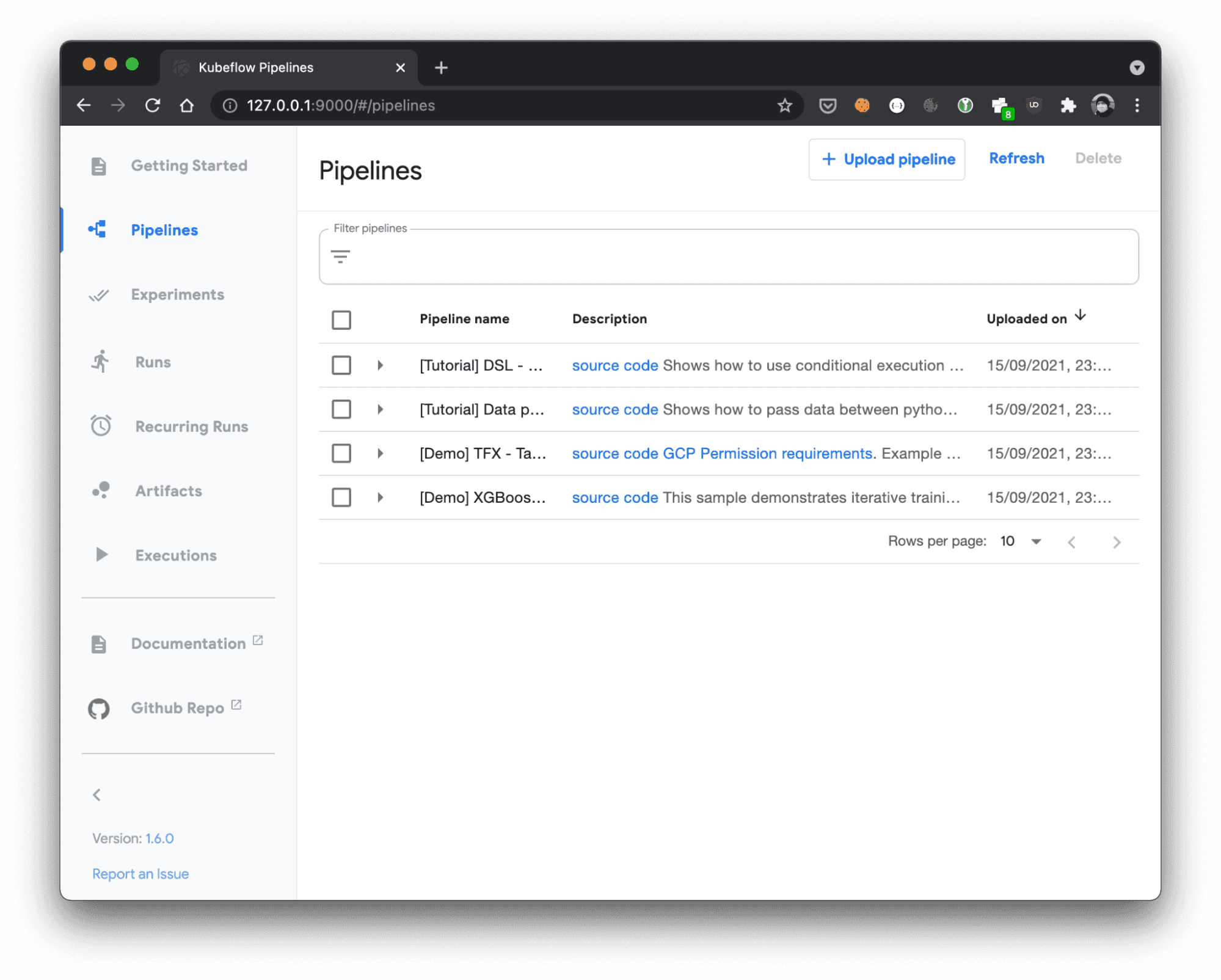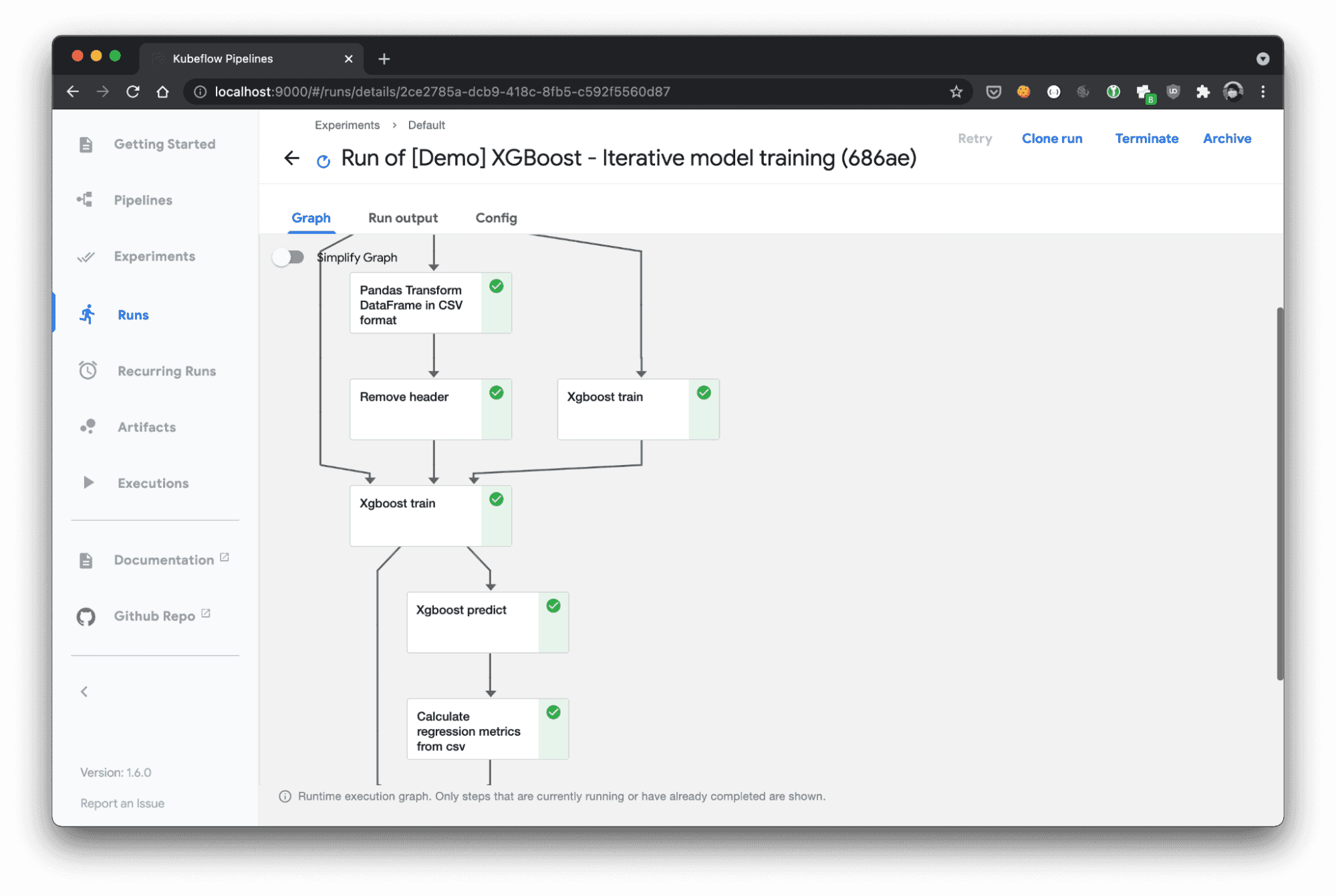How to build an e-commerce shopping assistant (chatbot) with LLMs
In the dynamic world of e-commerce, providing exceptional customer service is no longer an option – it's a necessity. The rise of online shopping has…
Read moreThe Kubeflow Pipelines project has been growing in popularity in recent years. It's getting more prominent due to its capabilities - you can orchestrate almost any machine learning workflow and run it on a Kubernetes cluster. Although KFP is powerful, its installation process might be painful, especially in cloud providers other than Google (who are the main contributor to the Kubeflow Project). Due to its complexity and high entry level, Data Scientists seem to be discouraged to even give it a go. At GetInData, we have developed a platform-agnostic Helm Chart for Kubeflow Pipelines, that will allow you to get started within minutes, no matter if you're using GCP, AWS or whether you want to run with KFP locally.
Before you start, make sure you have the following software installed:
Once you have all of the required software, the installation is just a breeze!
kind create cluster --name kfp --image kindest/node:v1.21.14It usually takes 1-2 minutes to spin up a local cluster.
helm repo add getindata https://getindata.github.io/helm-charts/
then
helm install my-kubeflow-pipelines getindata/kubeflow-pipelines --version 1.6.2 --set
platform.managedStorage.enabled=false --set platform.cloud=gcp --set
platform.gcp.proxyEnabled=false
Now you need to wait a few minutes (usually up to 5, depending on your machine) for the local KIND cluster to spin up all apps. Don't worry if you see ml-pipeline or metadata-grpc-deployment pods having a CrashLoopBackOff state for some time - they will become ready once their dependent services launch.
The KFP instance will be ready once all of the pods have this status Running:
kubectl get pods
| NAME | READY | STATUS | RESTARTS | AGE |
|---|---|---|---|---|
| cache-deployer-deployment-db7bbcff5-pzvwx | 1/1 | Running | 0 | 7m42s |
| cache-server-748468bbc9-9nqqv | 1/1 | Running | 0 | 7m41s |
| metadata-envoy-7cd8b6db48-ksbkt | 1/1 | Running | 0 | 7m42s |
| metadata-grpc-deployment-7c9f96c75-zqt2q | 1/1 | Running | 2 | 7m41s |
| metadata-writer-78f67c4cf9-rkfkk | 1/1 | Running | 0 | 7m42s |
| minio-6d84d56659-gcrx9 | 1/1 | Running | 0 | 7m41s |
| ml-pipeline-8588cf6787-sp68f | 1/1 | Running | 1 | 7m42s |
| ml-pipeline-persistenceagent-b6f5ff9f5-qzmsl | 1/1 | Running | 0 | 7m42s |
| ml-pipeline-scheduledworkflow-6854cdbb8d-ml5mf | 1/1 | Running | 0 | 7m42s |
| ml-pipeline-ui-cd89c5577-qhgbc | 1/1 | Running | 0 | 7m42s |
| ml-pipeline-viewer-crd-6577dcfc8-k24pc | 1/1 | Running | 0 | 7m42s |
| ml-pipeline-visualizationserver-f9895dfcd-vv4k8 | 1/1 | Running | 0 | 7m42s |
| mysql-6989b8c6f6-g6mb4 | 1/1 | Running | 0 | 7m42s |
| workflow-controller-6d457d9fcf-gnbrh | 1/1 | Running | 0 | 7m42s |
In order to connect to KFP UI, create a port-forward to the ml-pipeline-ui service:
kubectl port-forward svc/ml-pipeline-ui 9000:80
and open this browser: http://localhost:9000/#/pipelines

Our platform-agnostic KFP Helm Chart was based on the original chart maintained by the GCP team. At the moment of the fork, GCP chart was running version 1.0.4, we upgraded all of the components so that KFP was running the up-to-date version 1.6.0 (at the time of writing this post). GCP-specific components, such as CloudSQLProxy, ProxyAgent were refactored to be deployed conditionally, based on values provided in the chart.
We introduced a setting to enable or disable managed storage. Once enabled, it can use:
Now that you have a fully working local Kubeflow Pipelines instance, you can learn KFP DSL and start building your own machine learning workflows without the need for provision of a full Kubernetes cluster.

I encourage you to also explore GetInData's Kedro Kubeflow plug-in, which enables you to run the Kedro pipeline on Kubeflow Pipelines. It supports translation from the Kedro pipeline DSL to KFP (using Pipelines SDK) and deployment to running a Kubeflow cluster with convenient commands. Once you create your Kedro pipeline, configure the plug-in to use a local KFP instance by setting the host parameter in conf/base/kubeflow.yaml:
host: http://localhost:9000
# (...) rest of the kubeflow.yaml config
To stay up-to-date with the KFP Helm Chart, follow the Artifact Hub page! If you would like to know more about Kedro Kubeflow plug-in, check the documentation here.
Interested in ML and MLOps solutions? How to improve ML processes and scale project deliverability? Watch our MLOps demo and sign up for a free consultation.
In the dynamic world of e-commerce, providing exceptional customer service is no longer an option – it's a necessity. The rise of online shopping has…
Read moreFeature Stores are becoming increasingly popular tools in the machine learning environment, serving to manage and share the features needed to build…
Read moreOne of the main challenges of today's Machine Learning initiatives is the need for a centralized store of high-quality data that can be reused by Data…
Read moreIn the first part of the series "Power of Big Data", I wrote about how Big Data can influence the development of marketing activities and how it can…
Read moreLet’s take a little step back to 2023 to summarize and celebrate our achievements. Last year was focused on knowledge-sharing actions and joining…
Read moreNowadays, companies need to deal with the processing of data collected in the organization data lake. As a result, data pipelines are becoming more…
Read moreTogether, we will select the best Big Data solutions for your organization and build a project that will have a real impact on your organization.
What did you find most impressive about GetInData?